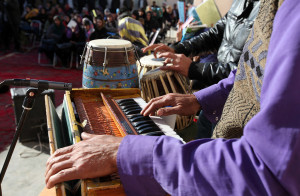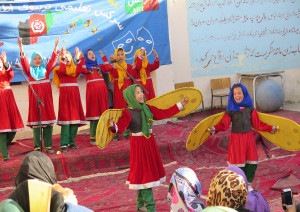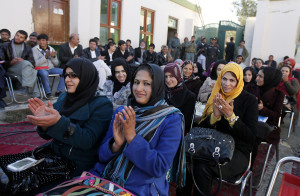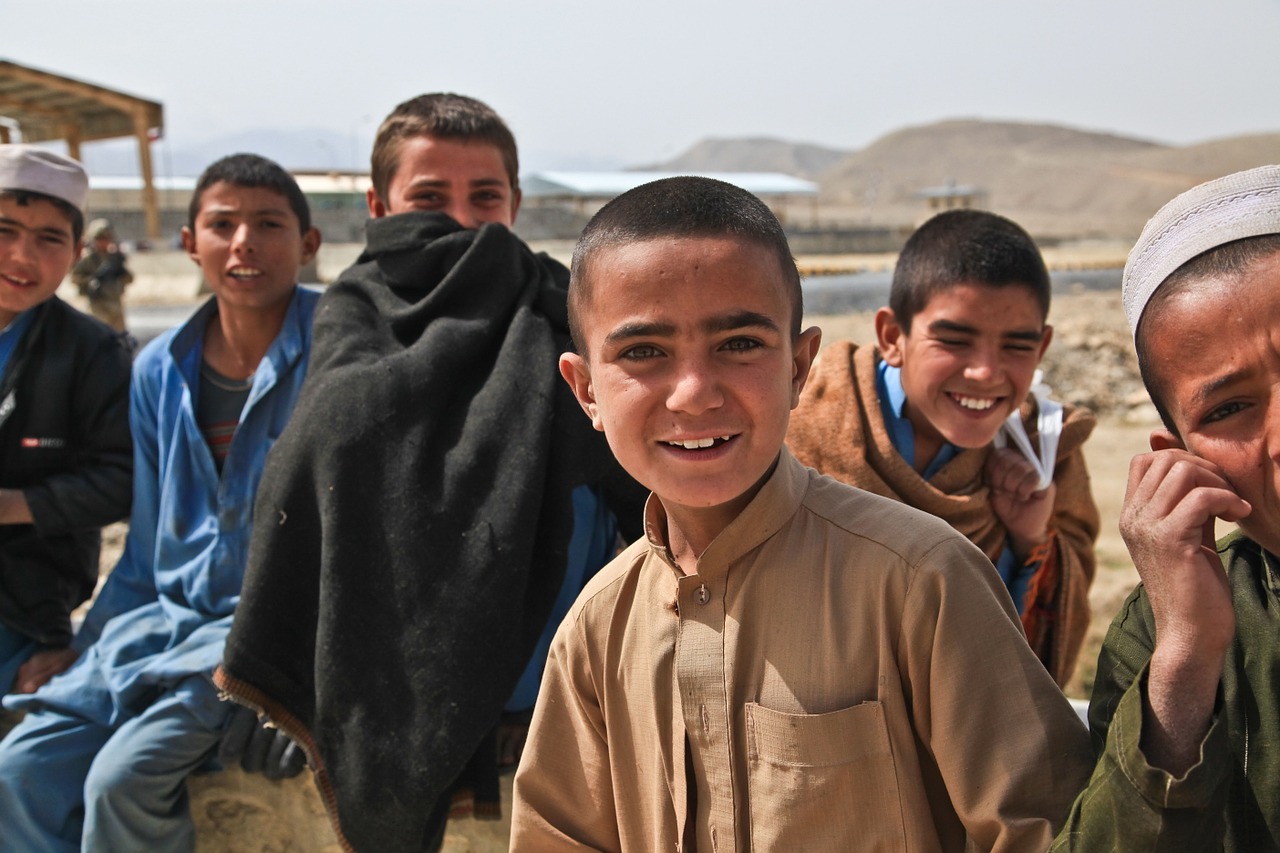With the goal of empowering Afghan children with the creative resources and abilities to effect social change, two Danish citizens, the former dancer David Mason and journalist Berit Mulhausen, founded the Mobile Mini-Circus for Children (MMCC) in 2002. MMCC works cooperatively with its local partner, the Afghan Educational Children’s Circus (AECC), forming a joint nonprofit organization registered with the Afghan Ministry of Economy.

Image courtesy UNAMA News | Flickr
Since its establishment, MMCC/AECC has successfully extended its reach to provide learning opportunities for hundreds of children through mobile workshops that travel the country, as well as permanent facilities in 10 provinces. Its main facility, the Children’s Culture House in Kabul’s Karte Se neighborhood, includes a stage, acrobatics hall, and playground that 120 students use daily. Along with juggling, acrobatics, and other circus arts, the MMCC/AECC curriculum includes classes in such diverse subjects as Quranic studies, reading and writing, media arts, and theater. Students also learn important social skills, such as cooperation, responsibility, and communication.
Central to MMCC/AECC’s teaching methods are activities that emphasize play and the power of children to learn from one another and develop solutions to practical problems. Through such group activities as building human pyramids, children acquire a sense of accountability and trust in one another. Under this approach, labeled “cheerful pedagogy,” MMCC/AECC encourages children to take the lead in their own education, with the result that students direct three-quarters of all circus learning activities facilitated by the organization.
Circus as a Tool for Social Development
For MMCC/AECC, the circus isn’t just a form of entertainment—it’s a vehicle for promoting cultural expression, advancing peace and social change, and raising public awareness and understanding of various issues affecting children. Since the organization’s inception, MMCC/AECC’s traveling staff of professional Afghan performers and trainers has conducted live shows and circus skills workshops for close to 3 million children in 25 of Afghanistan’s 34 provinces. Each show opens with a recital of a passage from the Quran, and all performances are adapted for the particular region, in order to conform to local customs and social norms.
MMCC/AECC often partners with other nongovernmental organizations to produce shows that deliver lessons on topics such as good hygiene, traffic safety, and the importance of attending school. Previously, MMCC/AECC collaborated with the UN Mine Action Center for Afghanistan to put on performances for children that demonstrated in an easy-to-grasp manner how to avoid the dangers of unexploded landmines.
In conjunction with performances, MMCC/AECC’s social circus methodology links the arts with social development by incorporating workshops that teach children creative thinking through instruction in a variety of circus-related skills. The workshops conclude with a performance before the children’s local community or school.
Festivals Celebrate Students’ Artistic Achievements

Image courtesy UNAMA News | Flickr
Complementing its regular performances, MMCC/AECC hosts several festivals and events in which its students are able to display the skills they have learned. The annual National Circus Festival in Kabul fosters unity and acceptance across ethnic and regional barriers by gathering children from all over the country to practice and perform together in a joyful community. MMCC/AECC sponsors the Afghan National Juggling Federation and the Juggling Championship is a main event at the National Circus Festival. Several other regional events highlight the theatrical arts and the photography, videos, radio programs, websites, and magazines produced by children in MMCC/AECC’s media production program.
Training Young Performers for a National Circus
Children at MMCC/AECC’s permanent centers who demonstrate exceptional talent can receive advanced training in a number of circus arts, including acrobatics, fire spinning, the Chinese stick, and the Cyr wheel. Close to 100 volunteer artists from around the world help the students develop acts that tell stories through a combination of circus arts and aspects of theater, like singing and comedy.
Through its advanced program, MMCC/AECC aims to assemble Afghanistan’s first national circus troupe. Leading student performers have already toured internationally and exhibited their talents before public audiences and government officials in Japan, Italy, Germany, and Denmark.
Shura Classes Teach Civic Engagement

Image courtesy UNAMA News | Flickr
To help young Afghans to engage in and influence civil society, MMCC/AECC facilitates local Children’s Shura (Shura-e-Atfal) classes and meetings, as well as an annual National Shura-e-Atfal in Kabul. The shura is the traditional Afghan method of consultative democracy, in which community members gather to debate and resolve shared problems. The shura classes provide children with a forum to address issues that affect their lives, along with instruction in the skills necessary to formulate effective arguments and advocate for their interests. At the National Shura-e-Atfal, participants have confronted such matters as the shortage of qualified school teachers, the need to do away with child labor, and the lack of acceptance for people with disabilities.
MMCC/AECC increases the impact of shura discussions through its supplementary Voices process. Exercises introduced in Voices prompt shura participants to record and develop feasible solutions to the issues they have collectively identified, thereby granting each child an appreciation of their individual power to influence the world around them.
A Focus on Children Who Are Most at Risk
Committed to principles of inclusivity, MMCC/AECC runs outreach programs specifically intended to contact the most vulnerable among Afghanistan’s children, including those who have lost their parents, live with disabilities, work in the street, or reside in settlements for refugees. MMCC/AECC strives to open its programs to youth from all different circumstances, and the organization supports the view that learning circus arts can encourage healing for children who have experienced trauma.

